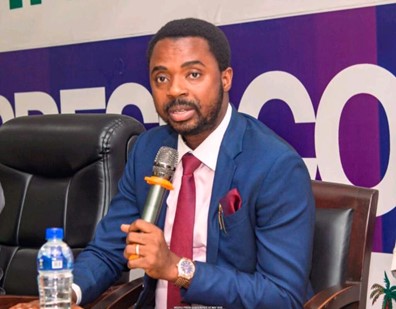By Millicent Senava Mannah
Sierra Leone’s youth are at the center of national development following the release of the first-ever Status of Youth Report, presented to President Julius Maada Bio in July 2025. The report provides a comprehensive snapshot of the challenges and opportunities facing young people, and it is expected to guide government policy, donor support, and community initiatives in the coming years.
The report highlights persistent economic vulnerabilities among youth, including high levels of poverty, unemployment, and reliance on informal work. While precise data from the report indicates that only a fraction of young people are engaged in formal employment, it also lays out strategic government targets to improve youth livelihoods through jobs, agribusiness, climate-smart agriculture, and innovation.
The report confirms the challenges many young Sierra Leoneans experience: limited access to formal employment and widespread economic vulnerability remain defining features of youth life.
A graduate in Freetown, seeking work after university, said the report validated the realities faced by many youth: “It’s frustrating, but at least now government cannot say they don’t know what we are facing, the data speaks for us.”
Among university graduates, the report notes that a smaller portion are employed, reflecting the ongoing disconnect between higher education and available job opportunities.
The Ministry of Youth Affairs has outlined ambitious targets to address these challenges over the next three years, including:
Creating 35,000 new youth jobs, establishing over 300 youth-led agribusiness startups, training 20,000 young people in climate-smart agriculture, boosting food yields by 15%, and increasing youth incomes by 30%.
These targets aim to benefit youth aged 15–35, who constitute over a third of the national population.
The report also recommends livelihood support and cash transfer programs, family-friendly policies such as childcare services, and expanded technical and vocational training (TVET) for those without formal education. Short accredited courses are highlighted as a pathway to meaningful employment.
Civil society leaders stress that these initiatives are long overdue. “For too long, young people have been left to hustle on their own,” said Abdulai Conteh, a youth activist. “This report could finally shift policy towards giving them real support, but only if promises turn into action.”
The Status of Youth Report is expected to enhance trust between young people and the government by making youth concerns central to governance planning. While past youth frustrations have contributed to unrest, the government hopes transparent reporting and actionable plans will foster engagement rather than discontent.
The report is a social contract. It says: we hear you, we see you, and we will design policies around your realities. If implemented, it could unlock significant potential among youth.
The report highlights progress in skills development, including the UNIDO-supported automotive program, which has trained dozens of young mechanics and established a new Centre of Excellence at Freetown Polytechnic. These initiatives serve as models for scaling technical training in other sectors.
Sierra Leone’s broader youth development strategy also emphasizes digital skills and innovation, aiming to create new opportunities for urban youth in emerging industries.
While the report’s findings underline significant challenges, its roadmap offers young people hope for a more inclusive future. The success of these initiatives depends on government investment, donor alignment, and youth engagement in program implementation.
The 2025 Status of Youth Report marks a milestone for Sierra Leone, exposing the scale of youth challenges while setting in motion reforms to empower a generation.


